HIGH PROTEIN FOODS
What foods are high in protein?
Protein is an important part of a healthy diet because it helps build and maintain muscle mass, which in turn boosts our metabolism.
The best sources of protein are animal-based foods like meat, poultry, eggs, seafood, and dairy products.
It’s also important to eat enough calories every day – if you don’t have enough energy from food for physical activity then the body will break down its own muscle tissue for fuel!
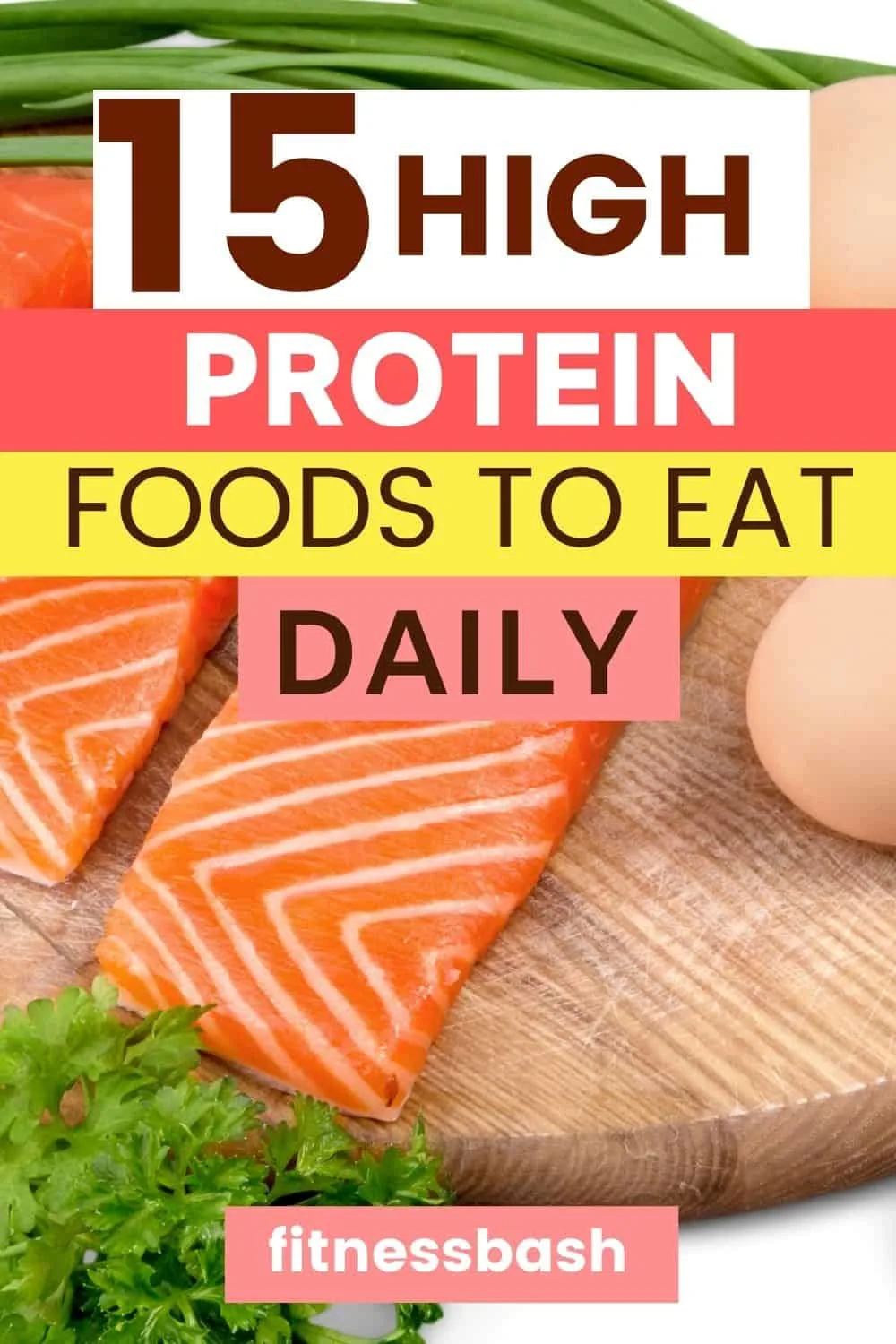
WHAT ARE THE BENEFITS OF EATING PROTEIN?
- Protein is an important building block for the body.
- Protein helps us feel full and satisfied after eating.
- Protein can help with weight loss by reducing appetite and cravings.
- Protein can help improve your mood, energy levels, and sleep quality.
- Eating protein at breakfast keeps us fuller longer throughout the day.
- Eating protein before a workout will give you more energy to power through it.
HOW MUCH PROTEIN DO YOU NEED EACH DAY
- Protein is an essential part of a healthy diet and can help us lose weight too.
- The recommended amount of protein for adults is 0.36 grams per pound or 56 grams per day.
- We should get more protein if we’re pregnant, breastfeeding, or trying to build muscle mass.
- Protein comes from many different sources – meat, eggs, dairy products like milk and cheese, beans, and legumes like chickpeas and lentils.
- If you don’t eat any animal products at all then your only source of protein will be plant-based foods such as tofu or soybeans.
How much protein per day to build muscle?
Protein intake and muscle building go hand in hand.
Protein is an essential macronutrient for all human beings. Protein builds and repairs muscle, helps the immune system function properly, regulates hormones and blood sugar levels, and supports growth and development in children- so it’s important to get enough of this nutrient every day.
The amount of protein you need depends on your age, weight, height, and activity level. Just like mentioned above, it should be at least 50 gms for an adult.
Although, the amount of protein per day to build muscle should be between 1.2g-1.7g per kg of your body weight.
So, if you are weighing 60 kgs then the amount of protein per day to build muscle should be around 70-100 gms a day.
Check this post to learn more.
TIPS FOR GETTING ENOUGH PROTEIN ON A VEGAN DIET
The best sources of protein:
- Protein is found in many plant-based foods, including beans, lentils, tofu, and soy milk.
- You can also get protein from nuts like almonds or peanuts.
- If you’re not a fan of the taste of raw vegetables try adding them to your favorite salads or smoothies.
- Try adding peanut butter to your toast for an easy way to add more protein to your diet.
- Add spinach to any dish that needs some extra color and flavor!
- When cooking pasta sauces use vegetable broth instead of water for added flavor and nutrients.
Let’s check out the Top 15 High Protein Foods that we should include in our diet.
- Do not miss out on 15 High Protein Meals for Dinner or Lunch
- 17 High Fiber Foods to keep you full all day long
THE HIGH-PROTEIN FOODS
1. BLACK BEANS
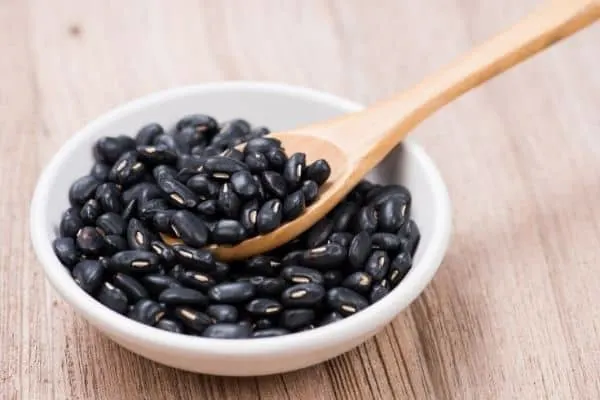
Black beans are among good sources of protein and they’re full of fiber, which helps us feel fuller for longer and lowers our risk for heart disease.
Black beans have antioxidants that help fight cancer-causing free radicals.
They’re low in fat and calories, making them an ideal food to eat if you want to lose weight or maintain a healthy weight.
Eating black beans can lower blood pressure by reducing the amount of salt in your diet.
Black beans contain folate, which is important during pregnancy because it reduces the risk of birth defects like spina bifida.
2. YELLOW CORN
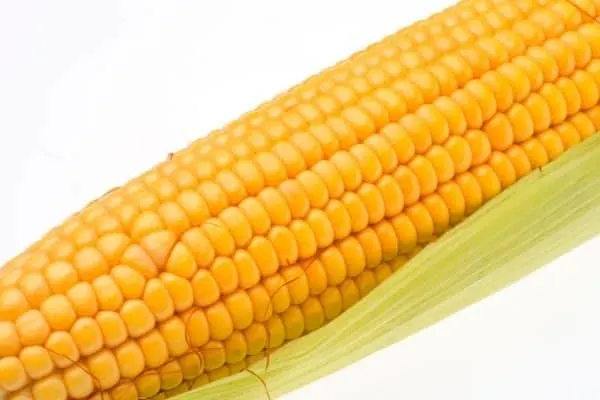
The protein level of yellow corn is quite high. It is about 15.6g per cup. Also contains a good amount of fiber and minerals.
The benefits of eating more protein-rich foods like those found in yellow corn are good for increased muscle mass and reduced risk of diabetes or heart disease.
Yellow corn is also a good source of dietary fiber, which can help with digestion and constipation.
Eating yellow corn may also be beneficial for people who suffer from diabetes because it’s low on the glycemic index scale.
3. SALMON
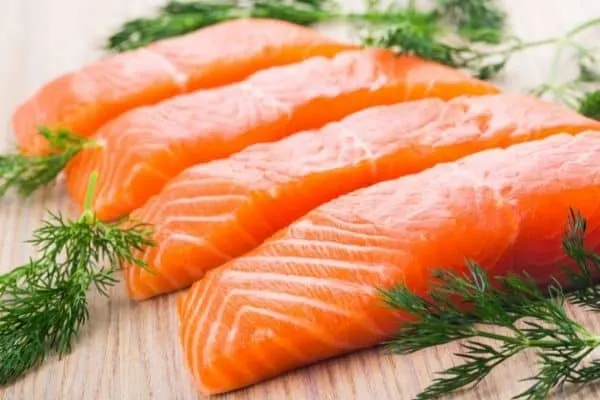
Salmon is the best lean protein food source.
Eating salmon may not be budget-friendly but it is a good source of omega-3 fatty acids and also supports having a healthy heart.
4. EGGS
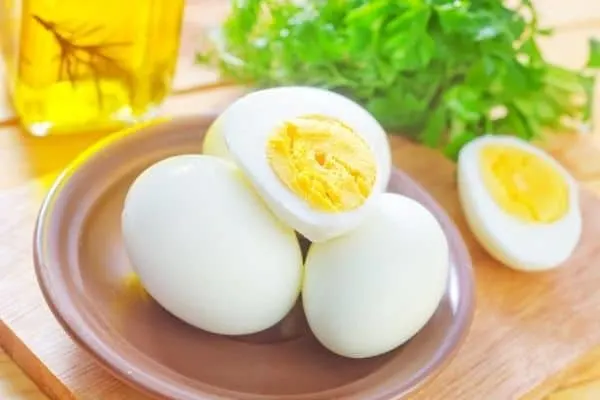
Eggs are full of protein, and they’re also high in vitamins A, D, E, and B12. They contain choline which is important for brain development too.
The cholesterol found in eggs can help to lower the risk of heart disease.
Eggs provide essential nutrients that are needed for healthy hair growth and strong nails and have also been shown to reduce the risk of diabetes by controlling blood sugar levels.
5. BEEF
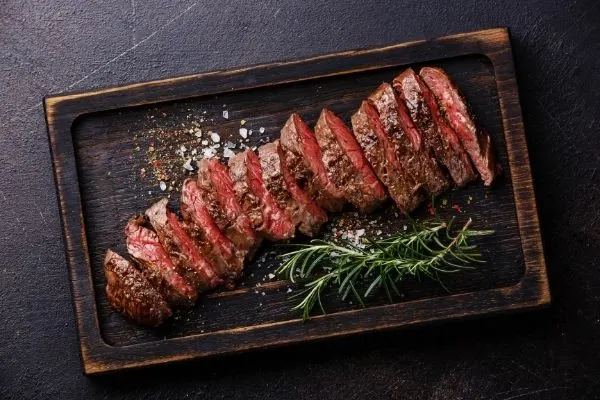
Beef is a great source of protein, iron, and zinc.
Red meat contains vitamin B12 which helps with energy levels and weight loss.
The high-quality protein in beef will keep you feeling full longer than in other meats or soy products.
You don’t need to eat red meat every day to reap these benefits – just two servings per week is enough!
6. CHICKEN BREASTS
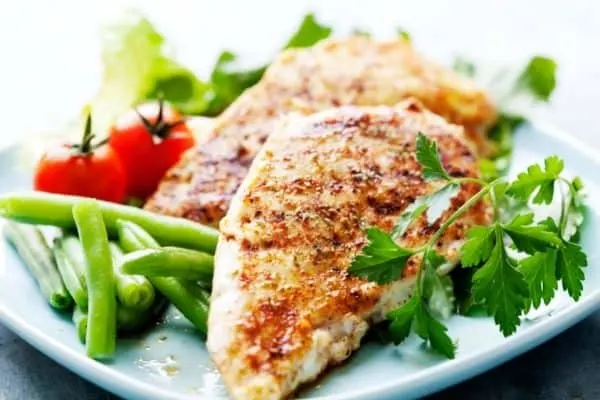
Chicken breasts are one of the high protein foods and they are low in fat and calories.
They contain all the essential amino acids our body needs.
Eating chicken breasts can help us maintain a healthy weight.
Nevertheless, chicken dishes are way too delicious for lunch or dinner.
7. OATS
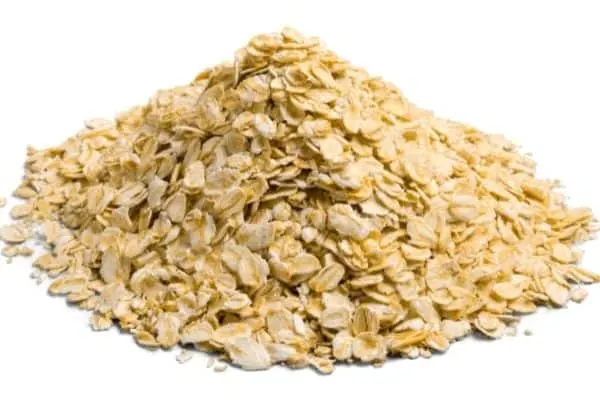
I cannot speak enough of this ingredient. Oats are a fantastic food for breakfast.
Oats are a great source of protein because they contain all nine essential amino acids, which are the building blocks for protein.
The average person needs about 50 grams of protein per day and oats provide about 12-14 grams per serving.
Protein is important for muscle growth and repair, immune function, hormone balance, weight management, and heart health.
You can add oats to your breakfast cereal or make them into oatmeal with some fruit on top!
8. TUNA
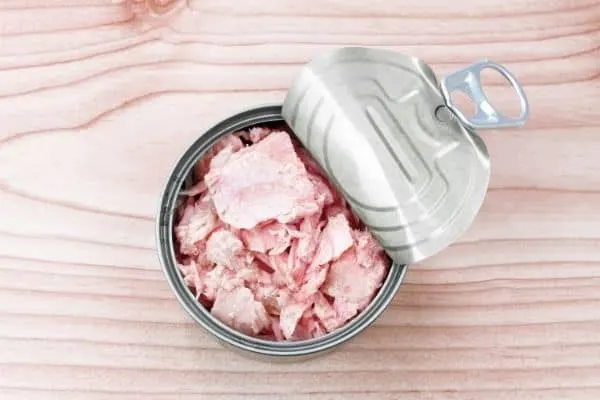
Tuna is a source of lean protein.
Tuna contains omega-3 fatty acids that are good for your heart and brain.
There are so many ways to prepare tuna, including sandwiches, salads, sushi, and casseroles and the best way to store tuna is in the fridge or freezer.
9. LEGUMES
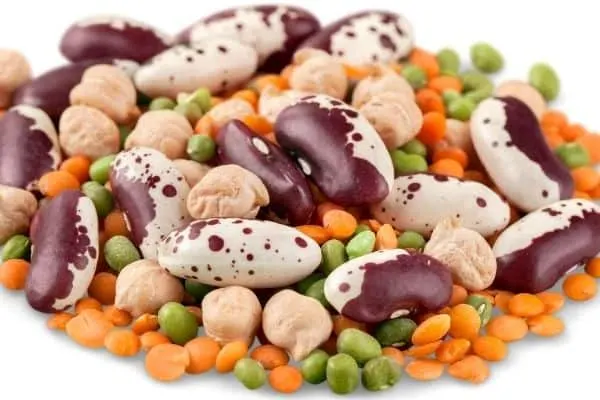
Legumes help lower cholesterol levels and blood pressure.
They’re inexpensive and easy to store for long periods of time.
You can use them in a variety of dishes, from soups to salads. If you don’t like the taste, try adding spices or sauces that complement your dish’s flavor profile.
Legumes are also good for the environment because they require less water than other crops.
10. TURKEY
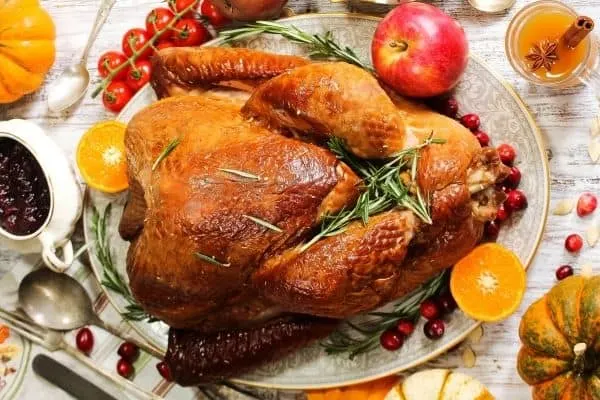
Turkey is a lean protein that’s rich in vitamins and minerals and is a great way to boost our metabolism.
The skin on a turkey has lots of healthy fats and nutrients like vitamin A and zinc.
Eating turkey can help lower your cholesterol levels and eating turkey will make you feel fuller longer than other meats because it takes more time to digest.
11. CHICKPEAS
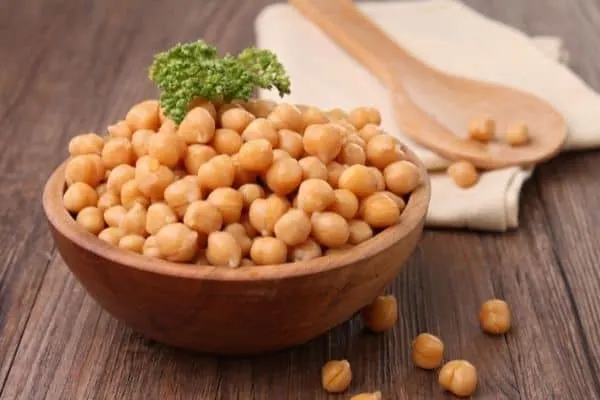
Chickpeas are a great source of protein, fiber, and iron and they’re low in fat and calories.
They can help lower cholesterol levels and have been shown to reduce the risk of heart disease.
Chickpeas are gluten-free so they’re perfect for people with celiac disease or gluten sensitivities.
You can use chickpeas as an alternative to meat in your favorite recipes!
12. GREEK YOGURT
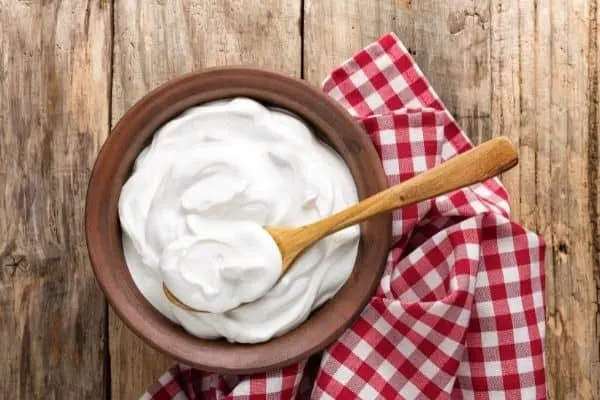
Greek yogurt is a source of protein and calcium.
It’s also high in probiotics, which can help with digestive problems.
It has less sugar than regular yogurt and it tastes just as good!
And you don’t have to worry about the fat content because it’s low-fat or non-fat.
You can use Greek yogurt in recipes like dips, sauces, and dressings for added flavor without all the calories of mayonnaise or sour cream.
If you’re on a diet, Greek yogurt is perfect because it contains fewer carbs than other yogurts.
That is why it is best to make yogurt at home.
13. COTTAGE CHEESE
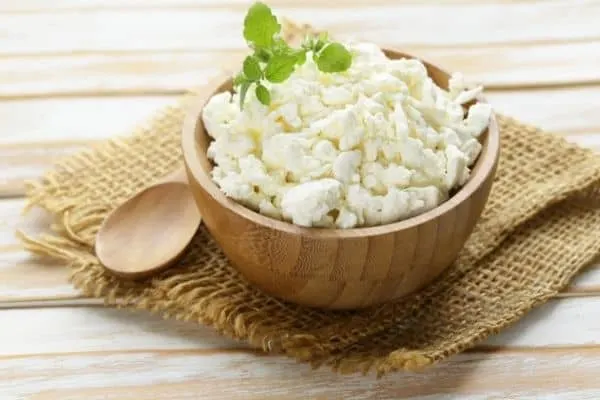
Cottage cheese is a great source of protein and is low in calories and fat.
It can help you lose weight.
It has calcium to strengthen your bones and teeth.
Eating cottage cheese can improve your mood by increasing serotonin levels in the brain.
Cottage cheese is high in vitamin B12, which helps with red blood cell production.
14. ALMONDS
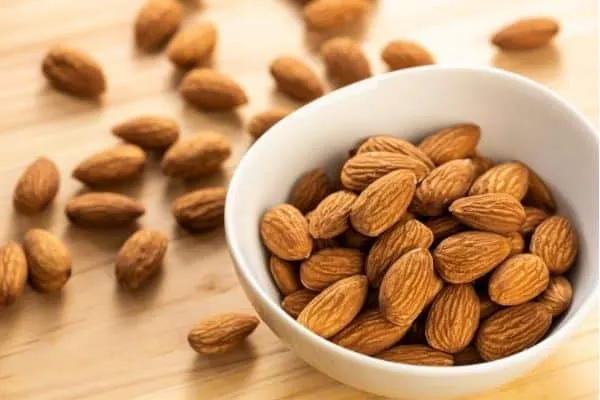
Almonds help lower cholesterol levels.
Almonds also promote healthy skin and hair.
The high fiber content in almonds helps keep you full for longer periods of time so that you don’t overeat or binge eat later on in the day.
Personally, almonds are my go-to snack.
15. AVOCADO
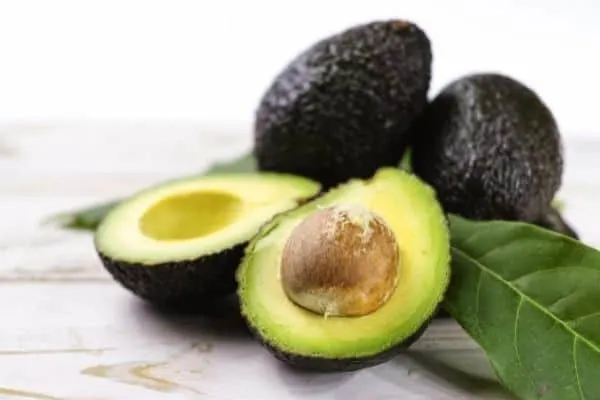
Avocados are a great source of healthy fats.
They’re packed with potassium, which helps regulate blood pressure.
Eating avocados can help you lose weight because they’re low in calories and high in fiber.
You’ll feel fuller for longer after eating an avocado because it’s rich in protein and fiber.
My Take on High-Protein Foods
Protein is essential for building muscle, maintaining a healthy weight, and feeling full. But what about the other benefits of protein? From boosting your immune system to fighting age, it’s clear that high-protein foods are worth adding to our diet.
Even if you are on a keto diet, then too we need enough proteins and fats.
So what does this all mean for me?! Make sure that at least one-third of the things you eat each day come from protein sources! This means two servings per meal with three meals per day – so six servings total!
Do not forget to grab your effective fitness journal.
Related Good Foods for Our Body
- 12 Best Foods for weight loss
- 22 Healthy Snacks to Eat Anytime
- 13 Worst Foods for Weight Loss
- 19 Top Low-Carb Foods to Eat in Daily Life
High Protein Foods
15 High Protein Foods to Stay Fit All Day
Course: Healthy Recipes4
servings1
minute300
kcalDo you want to build muscles or give a boost to your metabolism?
If you’re looking to add more protein to your diet, look no further!
These high-protein foods are both delicious and healthy.
Add them to your next meal and see the difference they make.
Ingredients
1. Black Beans
2. Yellow Corn
3. Salmon
4. Eggs
5. Beef
6. Chicken Breasts
7. Oats
8. Tuna
9. Legumes
10. Turkey
11. Cheak peas
12. Greek Yogurt
13. Cottage Cheese
14. Almonds
15. Avocado
Directions
- Choose 2-4 high-protein foods to eat daily.
- Alternate the food items every week to get the maximum benefits of other nutrients stored in them.
- Boost your metabolism and enjoy an energy-driven life.
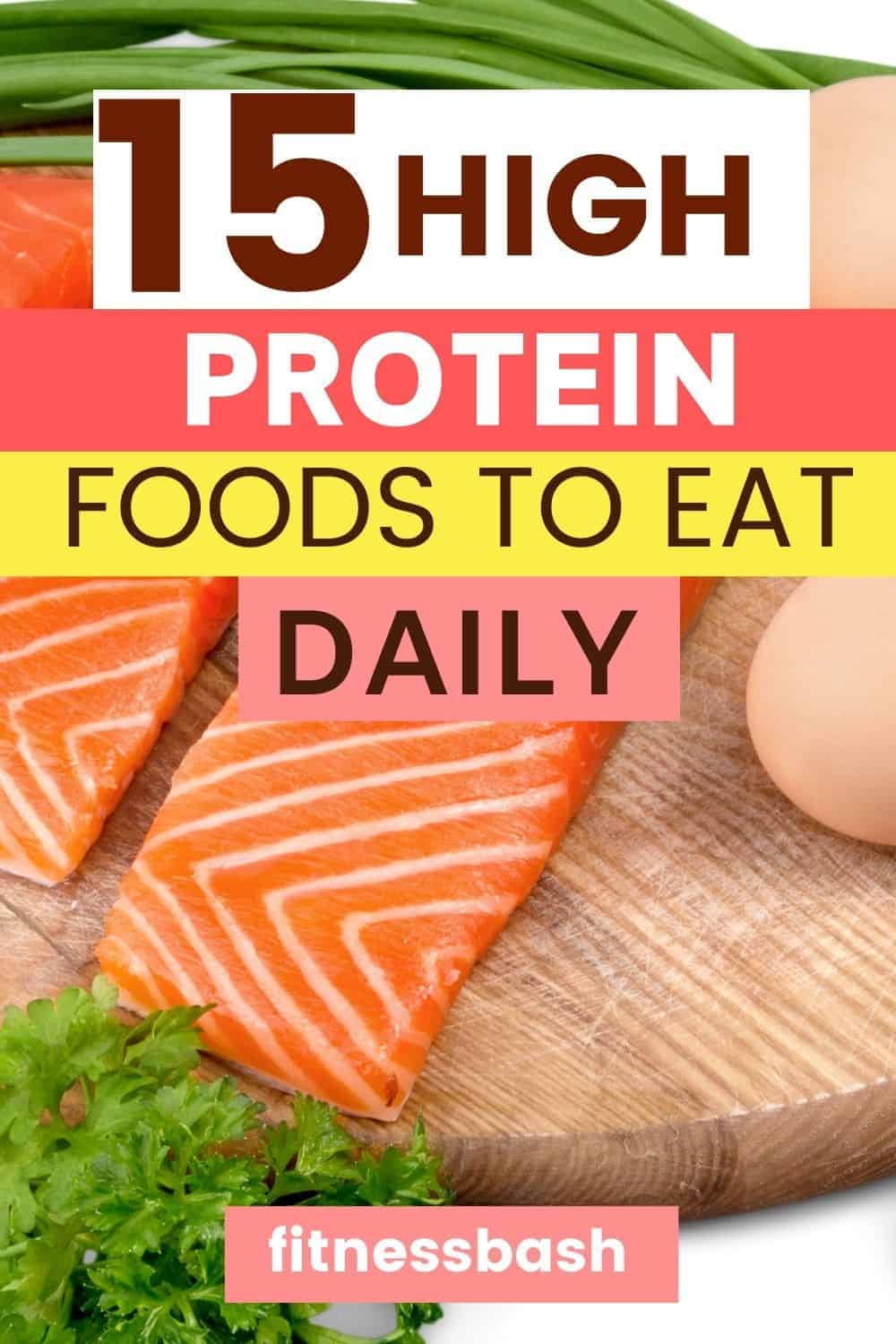
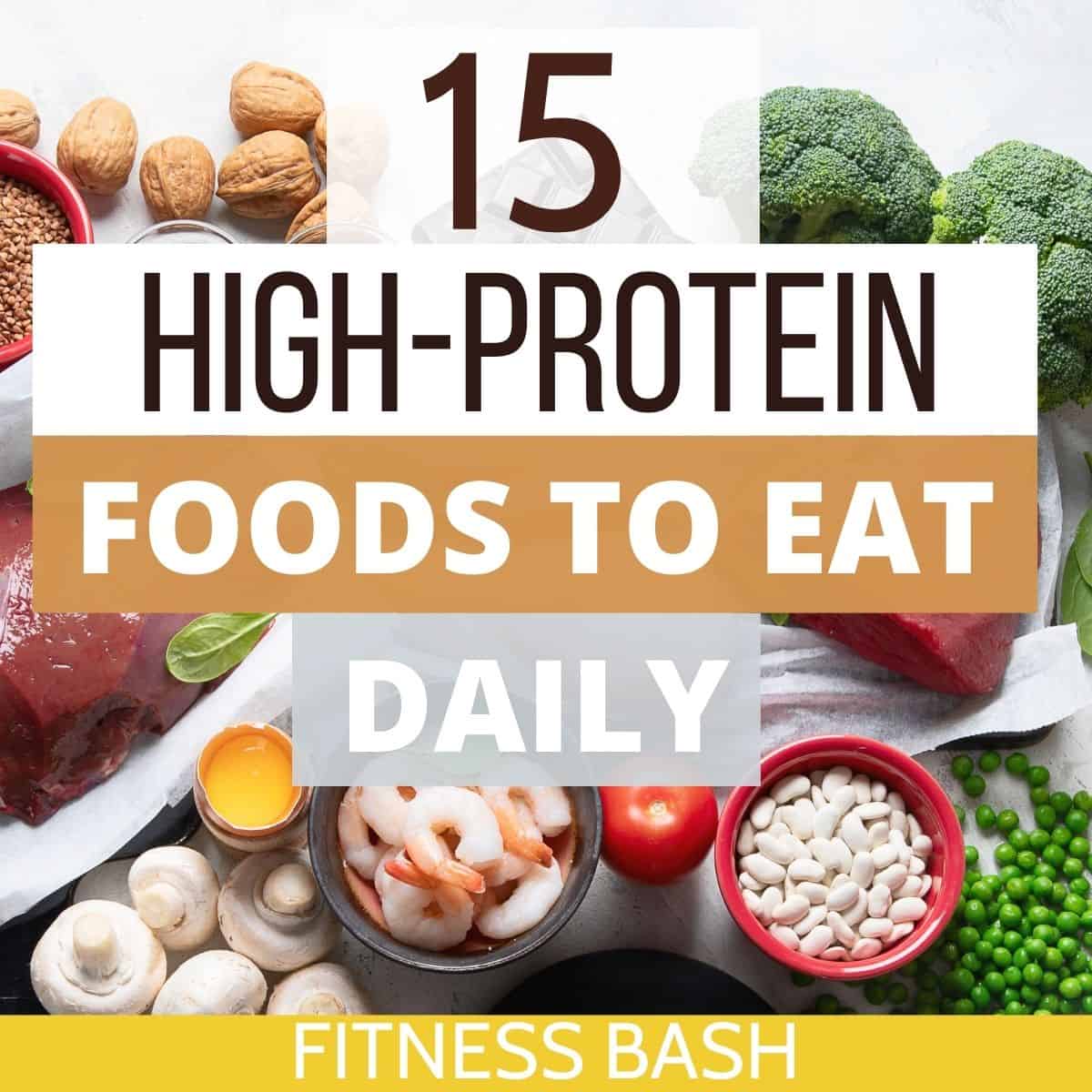
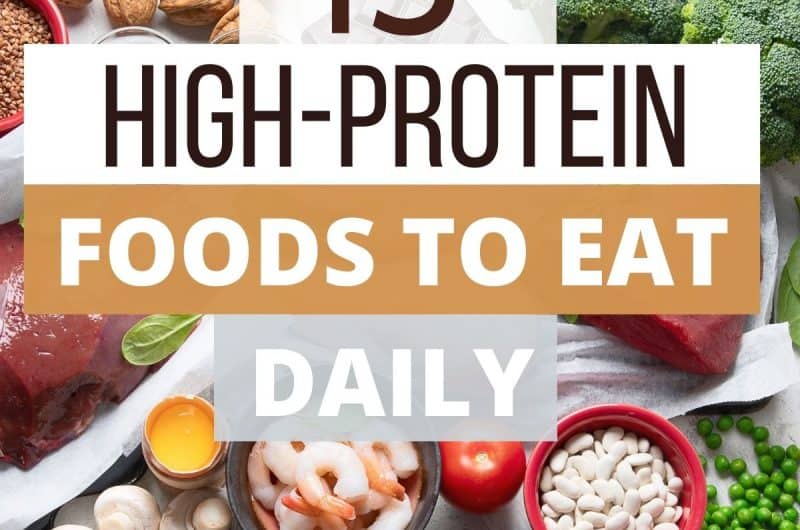
You wrote “[Food] is a great source of protein” for every item.
Yes, as the foods listed here, all are great sources of proteins.
The Tuna piece should come with a warning to not make it a staple because of its high mercury content. People tend to overdo one or another thing, Tuna should really not be that thing…
Thanks for sharing this amazing blog love the way of your writing keep it up dear.